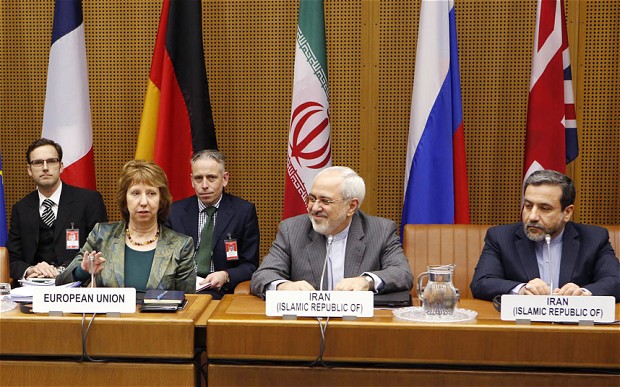A deal on limiting Iran’s nuclear programme in return for the lifting of sanctions has been reached at talks in Vienna, diplomats say.
Under the agreement, access for nuclear inspectors monitoring Iran’s programme would reportedly not be automatic.
Meanwhile, the International Atomic Energy Agency (IAEA) said it had signed a “roadmap” with Iran.
Six world powers including the US, Russia and the UK have been negotiating with Iran for several years.
The EU announced a “final plenary” meeting for the current talks in Vienna at 08:30 GMT, followed by a news conference.
The so-called P5+1 – the US, UK, France, China and Russia plus Germany – want Iran to scale back its sensitive nuclear activities to ensure that it cannot build a nuclear weapon.
Iran, which wants crippling international sanctions lifted, has always insisted that its nuclear work is peaceful.
Follow our live updates
The text of the deal has not been released but these are some of the details it is believed to contain:
A compromise over the inspection of sites within Iran, the Associated Press quotes a diplomat as saying – UN inspectors woule be allowed to monitor military sites but Iran could challenge requests for access
Iran has accepted that sanctions could be restored in 65 days if it violates the deal, Reuters cited diplomats as saying
A UN arms embargo and missile sanctions would remain in place for five and eight years respectively, Reuters reports
‘Significant step forward’
Shortly after reports of the deal emerged, IAEA head Yukiya Amano told reporters in Vienna that his organisation had signed a roadmap “for the clarification of past and present outstanding issues regarding Iran’s nuclear programme”.
He called the agreement a “significant step forward”, saying it would allow the agency to “make an assessment of issues relating to possible military dimensions to Iran’s nuclear programme by the end of 2015”.
On Monday, Iranian President Hassan Rouhani tweeted that if there was a deal with world powers, it would be a “victory of diplomacy and mutual respect over outdated paradigm of exclusion and coercion. And this will be good beginning.”
There has been stiff resistance to a deal from conservatives both in Iran and the US.
Israel’s government has also warned against an agreement.
Following reports of a deal, Israeli Prime Minister Benjamin Netanyahu was quoted as saying that Iran would receive a “sure path to nuclear weapons” and “a cash bonanza of hundreds of billions of dollars”.
 Afghanistan Times
Afghanistan Times




